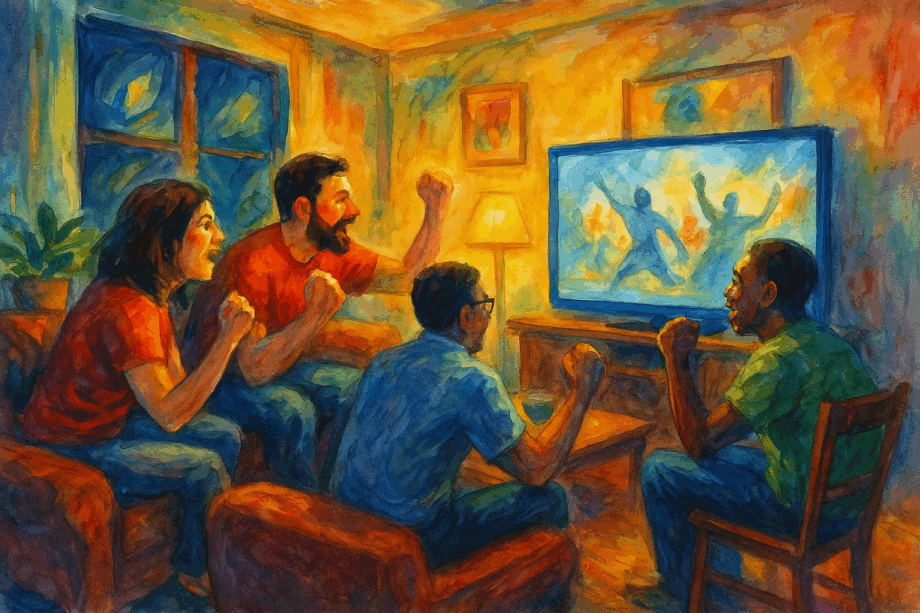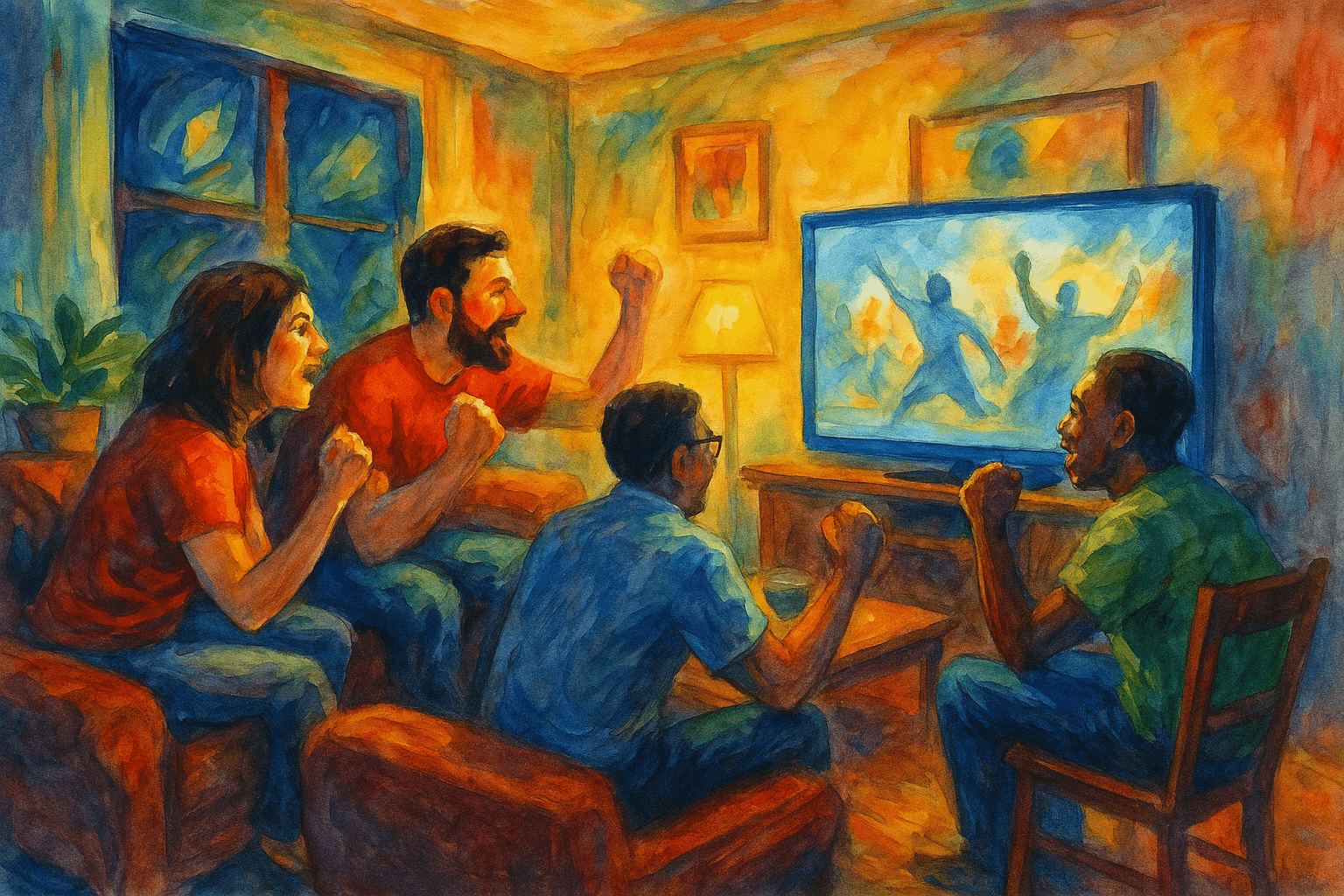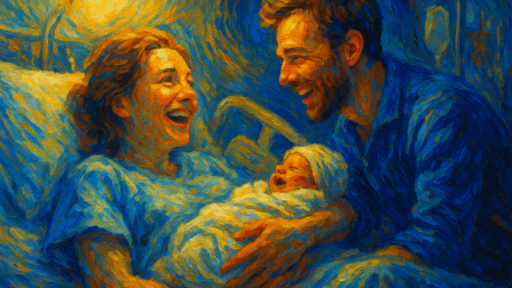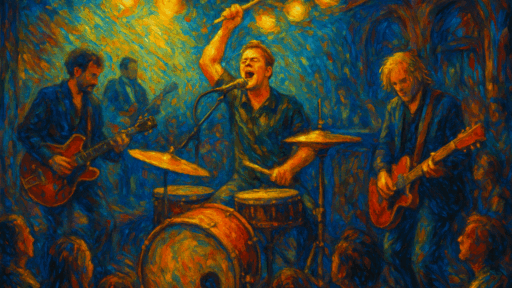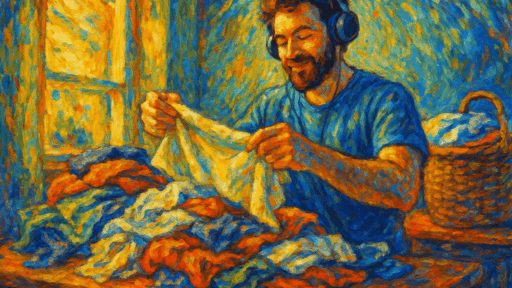“Sports are the only entertainment where, no matter how many times you go back, you never know the ending.”
Neil Simon
Roger Bennett once called sports “the most important unimportant thing in life,” which is about as perfect a description as I’ve ever heard.
Sports are ridiculous—grown adults chasing balls, sliding in the dirt, sweating through polyester, and then being paid sums of money that could end world hunger if they felt like passing the hat.
And yet, they matter. Desperately.
They matter enough that we cry in living rooms, high-five strangers in bars, and wear lucky socks that haven’t seen the inside of a washing machine since the Clinton administration.
For me, athletes have always been more than highlight reels. They’ve been the background soundtrack to certain seasons of my life, the names on jerseys I couldn’t afford, and the human proof that ordinary people can, occasionally, do extraordinary things.
So here’s my list—not definitive, not exhaustive, just personal. These are my favorite athletes of all time. The ones who made me cheer, curse, and occasionally believe in magic.
Andre Agassi
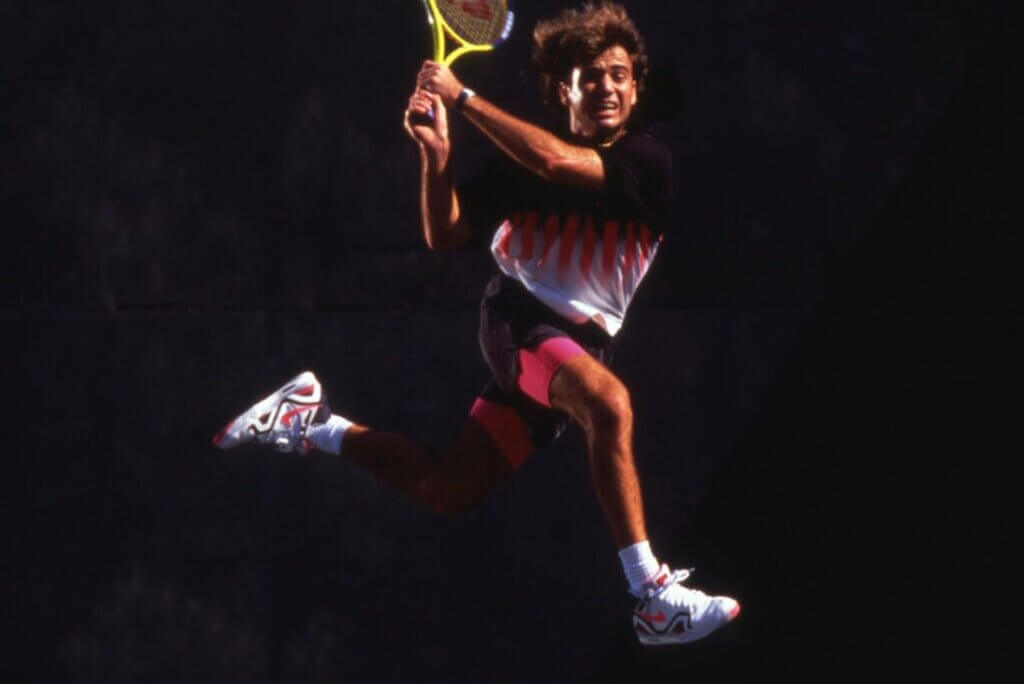
Growing up playing tennis meant weekends often found my dad and me glued to the TV, soaking in the golden age of the sport…
Boris Becker diving.
Steffi Graf slicing.
Stefan Edberg floating like a ghost.
Monica Seles grunting.
Pete Sampras serving rockets.
Gabriela Sabatini spinning elegance.
Ivan Lendl grinding away in baseline purgatory.
And then there was Agassi.
The hair, the neon, the denim shorts that looked like they’d lost a fight with a Bedazzler. He was brash, flawed, and—at times—downright maddening.
But he was also electric.
Agassi made tennis feel less like a country club hobby and more like rock and roll.
He didn’t just hit forehands, he performed them. And while the hairpiece eventually gave way to bald brilliance, the charisma never left.
Andre Dawson
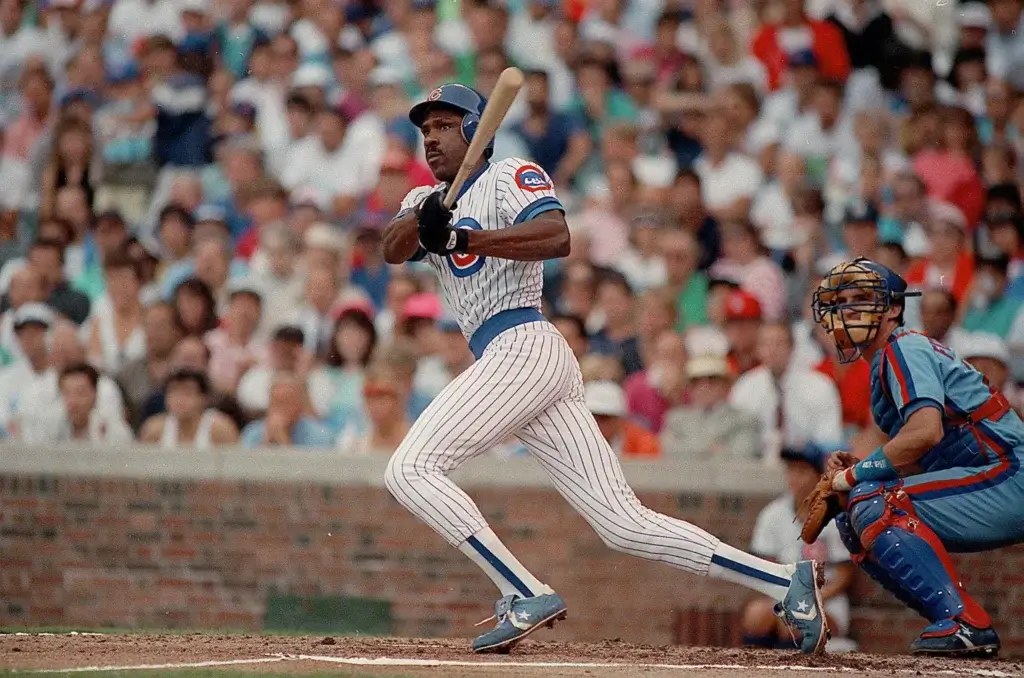
When I think of Andre Dawson, I don’t just picture a ballplayer; I remember an entire summer defined by WGN afternoons, questionable life choices, and the slow death of perfectly good VHS tapes.
While other kids were out riding bikes or turning vaguely tan, I was inside hunched over the VCR, the kind that blinked 12:00 no matter how many times you set it, recording every single one of Dawson’s at-bats.
Every. Single. One.
It wasn’t enough to watch him; I needed a personal Smithsonian of his swing—his unusual crouched stance, his quiet intensity, his habit of sending baseballs into low Earth orbit.
Looking back, it was either devotion or early-onset insanity, but that summer Dawson was my whole world. He wasn’t just in the Cubs lineup; he was the Cubs lineup. Those tapes are probably buried in an attic now, holding up a wobbly table leg or serving as a mouse condo, but I don’t regret a second.
Because that summer, Andre Dawson didn’t just make baseball feel special. He made one kid in front of a fuzzy, barely-in-color TV feel like he was watching a legend in real time.
Bo Jackson
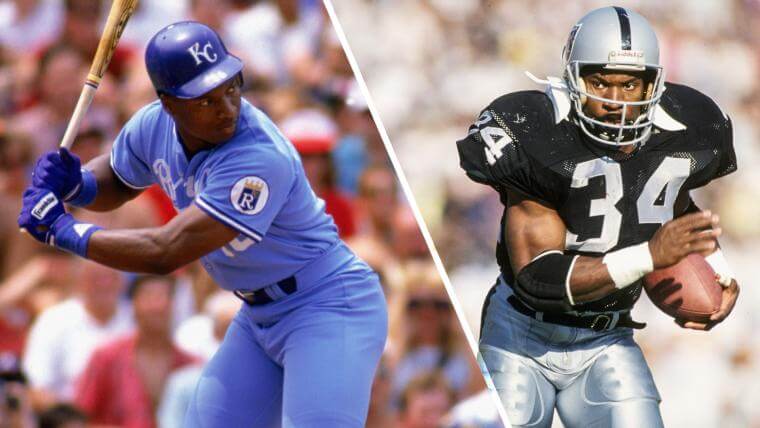
Bo Jackson wasn’t just an athlete; he was a Marvel character who accidentally wandered into the wrong universe.
One minute he was running over linebackers like they were traffic cones, the next he was snapping baseball bats across his thigh as if they were breadsticks. For kids like me, he wasn’t just “good at sports.” He was proof that physics was negotiable.
The “Bo Knows” commercials only made it worse. Suddenly, it wasn’t enough for him to dominate football and baseball—apparently, Bo also knew hockey, golf, and, for all I know, nuclear engineering.
Watching him felt less like fandom and more like folklore being written in real time.
Bo didn’t have the long career his legend deserved, but he didn’t need it. He gave us moments so outrageous they still feel half made-up, and that’s the thing: with Bo, the line between highlight reel and tall tale disappeared.
Clint Dempsey
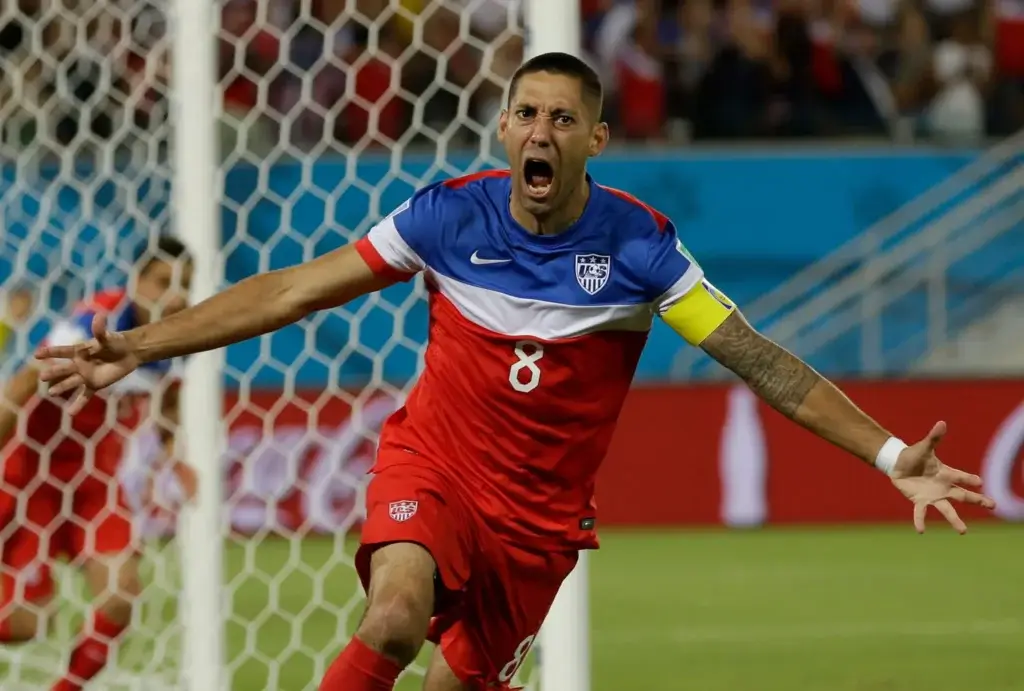
Clint Dempsey never stopped looking like the guy who’d finish a World Cup qualifier and then head straight to a bait shop.
Which is exactly why I loved him.
The kid from Nacogdoches played every match with a permanent chip on his shoulder—half defiance, half Texas swagger—and somehow turned it into goals against Juventus, England, Ghana, you name it.
He wasn’t polished, and he certainly wasn’t glamorous.
Dempsey played like a man who’d been told “no” a few too many times and decided to make “yes” happen anyway. There was a stubbornness to him, sure, but also this sneaky artistry—an audacious chip here, a sneer there—that made him impossible not to love.
And on top of all that, the man rapped. Of course he did. Because why not?
Dempsey was Texas through and through—gritty, surprising, a little absurd—and somehow still exactly the hero American soccer needed.
Dante Hall

Watching Dante Hall return kicks felt less like football and more like watching a squirrel zig-zag across six lanes of traffic—chaotic, improbable, and weirdly inspiring. Every return looked like certain doom, and then—he was gone, leaving defenders flailing at air.
And then there was …the helmet.
My wife and I could never get over it. It always looked a size or two too big, wobbling on his head like it was hanging on for dear life. It became our private running joke—half comedy, half adoration.
Every time he fielded a kick, one of us would nudge the other: “Helmet’s loose again. Here we go.” And sure enough, off he’d go, oversized helmet bouncing, defenders whiffing, us laughing and cheering like kids.
Every time he lined up, we leaned in, waiting for the joyful nonsense to unfold. Because for us, Dante Hall wasn’t just the “X-Factor.”
He was our favorite. Always.
David Beckham
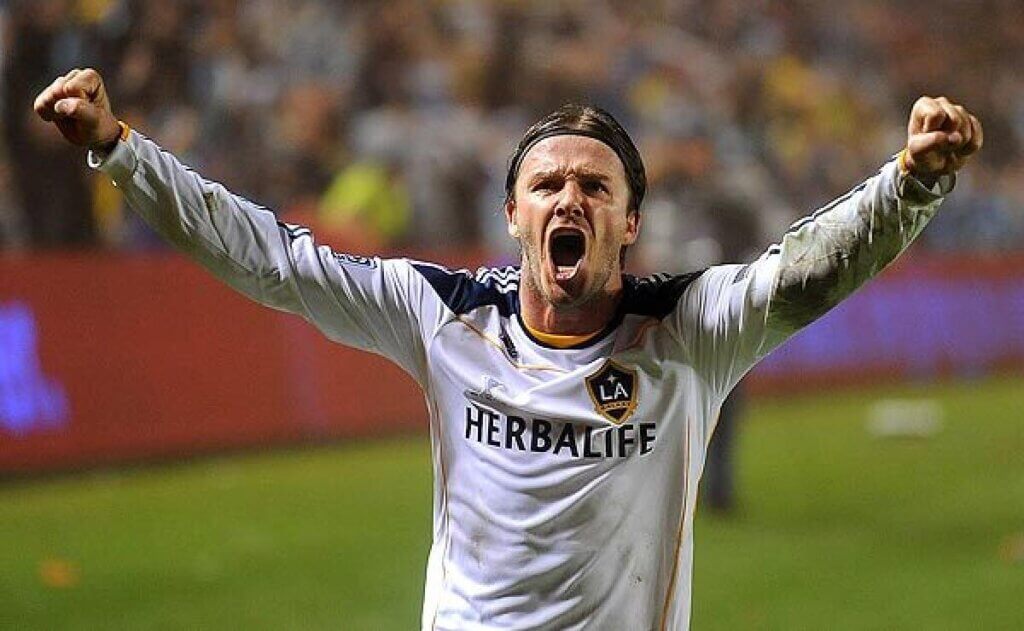
By the time David Beckham showed up in Los Angeles, he wasn’t just a soccer player—he was a brand, a haircut, a perfume, a walking Times Square billboard. He could bend a ball around a wall of defenders and sell you jeans in the same afternoon. For most of the world, the stardom came first.
But for me—as a Galaxy fan—it was different.
His arrival felt like validation, proof that American soccer wasn’t just the side gig you played between World Cups. And beneath the flashbulbs and tabloid noise, there he was: a consummate pro, delivering free kicks that seemed to laugh at the laws of physics, threading passes that made the whole field look suddenly organized.
He took the spotlight everywhere he went, but what I loved most was how he carried it—gracefully, stubbornly, and with the kind of quiet dedication that made you forget, if only for ninety minutes, that he was also one of the most famous people on earth.
Beckham in Galaxy colors was surreal, yes, but mostly… eventually… it was joy. The game felt bigger, brighter, better. And it finally felt like it belonged here.
Dirk Nowitzki
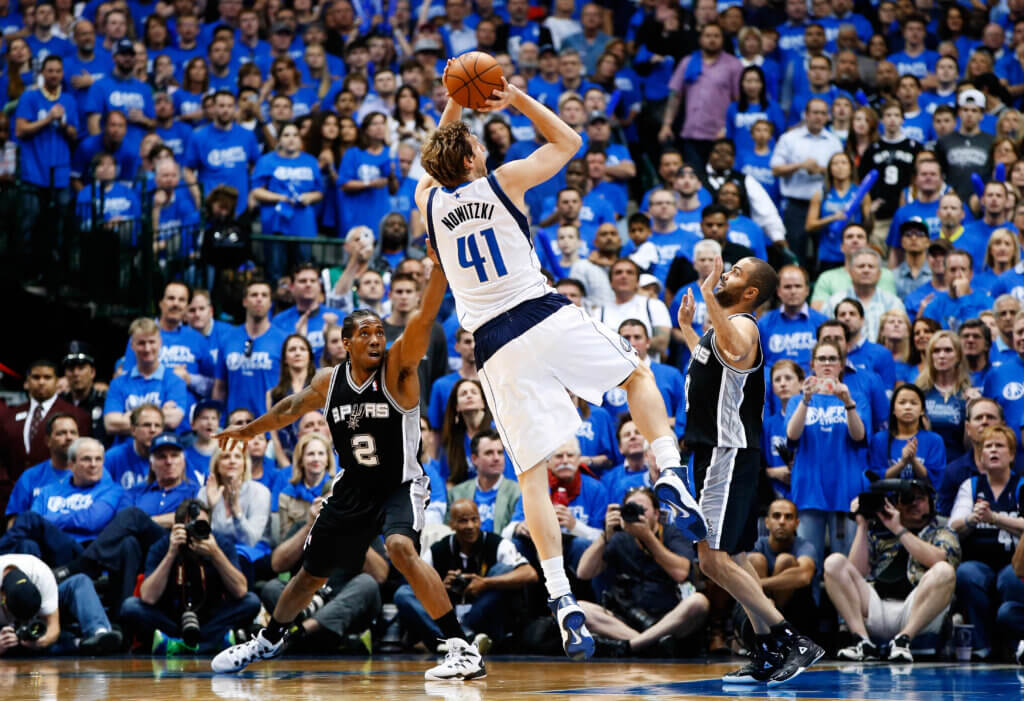
There are athletes you admire, and then there are the ones you adopt as family. Dirk was the latter. The loyalty, the one-legged fadeaway, the way he made seven feet tall look like poetry instead of plumbing—it all just felt like ours. Dallas had Dirk, and that meant something.
He wasn’t loud, he wasn’t flashy. He was steady.
A franchise cornerstone built out of awkward charm and impossible jumpers. He gave the city twenty-one years, a championship that felt like a fairy tale, and a reminder that greatness doesn’t always come wrapped in swagger—it can also arrive in high-water jeans and a German accent.
And still today, whenever I toss a crumpled piece of paper into a trash can, I can’t help it: “Diiiiirk.” Every shot, every arc, every hopeful flick of the wrist is a tiny tribute to the big German and his effortless magic.
Sometimes the paper even goes in.
DaMarcus Beasley
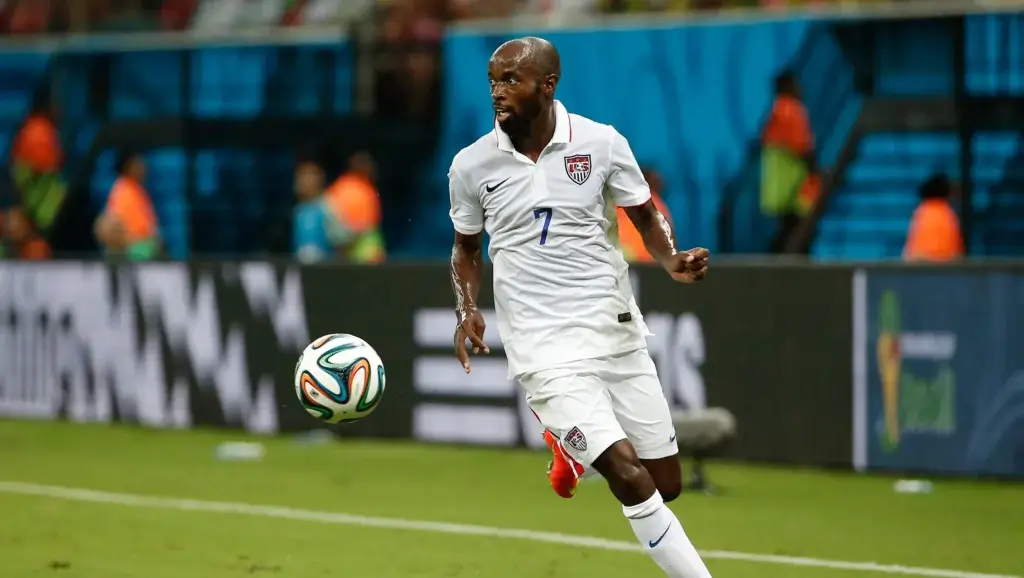
DaMarcus Beasley played like soccer was recess and he was the fastest kid on the playground. My wife and I loved him for it—the grin, the joy, the way he’d take off down the wing like a cartoon character whose legs were moving faster than the scenery could keep up.
He was so quick defenders didn’t so much mark him as file a missing persons report. One second he was here, the next he was gone, smiling the whole way.
And that smile mattered. In a sport that often takes itself far too seriously—grimaces, dives, melodrama—Beasley reminded us that joy was the point all along.
For us, he became more than just a player.
Watching him was like being let in on a secret: that beneath all the pressure and the pageantry, games are supposed to be fun. Every time he sprinted down the wing, we felt it too—that burst of joy, simple and contagious, the kind you want to hold onto long after the match is over.
Landon Donovan
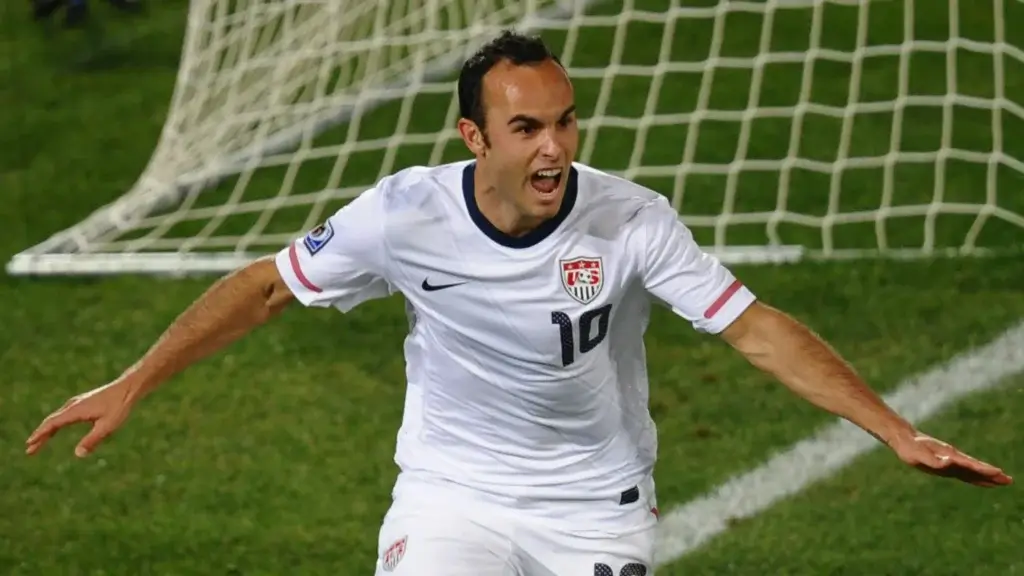
If there’s one athlete who holds a permanent, reserved seat in my heart, it’s Landon Donovan. He’s not just my favorite soccer player—he’s my all-time favorite athlete, period. I’ve followed him from the beginning, when he was just a scrappy teenager with potential practically spilling out of his oversized jersey, through every exhilarating high and painful low, right up to his eventual retirement (and brief un-retirement—and then retirement again).
He wasn’t perfect—there were stumbles, tough decisions, and plenty of games that didn’t go his way. But honestly, that’s precisely why I loved him. He didn’t have to be flawless to be my favorite. Rooting for Landon felt less like typical fandom and more like cheering on a friend—one who wasn’t aware we were friends, admittedly, but that never bothered me.
Take the 2002 World Cup, when he scored that iconic goal against Mexico in the Round of 16. It was three in the morning, and Shelley and I had dragged a couple of friends out of bed—people who really deserved better friends than us.
There we sat, bleary-eyed, gripping mugs of coffee strong enough to dissolve teeth, hoping something (anything!) might justify the lost sleep. Then Donovan happened, taking a cross and coolly burying it into the net. Suddenly, we weren’t just watching soccer—we were participating in it, yelling loud enough to terrify the neighbors. Donovan sprinted toward the corner flag, arms wide, as if to say, “I’m sorry, did someone count us out?”
Ah… those were the days.
Of course, any conversation about Landon Donovan eventually arrives at the moment—the goal against Algeria in 2010. That goal doesn’t merely live rent-free in my head; it built a throne, invited friends, and now regularly hosts parades in its own honor.
It wasn’t just a game-winner; it was a spine-tingling explosion of pure, unfiltered joy that somehow united an entire country. I’ve never screamed louder or jumped higher in my life, and judging by the videos of celebrations across America, I clearly wasn’t alone.
For those brief seconds, hope became reality, and everyone in the room (and across the country) completely lost their collective minds.
But Donovan wasn’t just a national hero. With the LA Galaxy, he was more than a star—he was a comforting constant. He performed as if ice water ran through his veins, achieving feats of calm brilliance precisely when panic would have been justified. His World Cup heroics may have earned him global respect, but in LA, he became the reliable, steady heartbeat of American soccer.
Then, as if my sports universe decided to grant a personal wish, Landon turned up at my beloved Everton.
What were the odds?
He wasn’t merely a player on loan; he fit the team so perfectly you’d think he’d grown up in Liverpool, spending weekends eating fish and chips and casually humming Beatles tunes. Watching him in Everton blue felt like seeing my favorite book character step off the page and casually stroll into my neighborhood coffee shop.
What made Landon Donovan truly remarkable (to me, at least), wasn’t just his soccer. It was his willingness to be complicated, openly discussing his mental health, stepping away from the spotlight when he needed to, and choosing family and self-care over the expectations of fans and critics. Plenty criticized him for not fully committing to Europe, claiming he “underachieved” by staying stateside. For me, though, that choice only made him more admirable. He wasn’t playing by anyone else’s rules—just his own.
And that’s precisely why Landon Donovan remains so special to me. He wasn’t defined solely by goals, trophies, or highlight reels (though he had plenty). Instead, he was defined by honesty, heart, and the courage to live authentically, even under intense scrutiny.
His playing days may be behind him, but Landon Donovan’s impact remains. He’s still my favorite—not just for the athlete he was, but for the complicated, genuinely human person he chose to be.
And somehow, it still feels as though he’s out there, playing for my team.
Lewis Hamilton
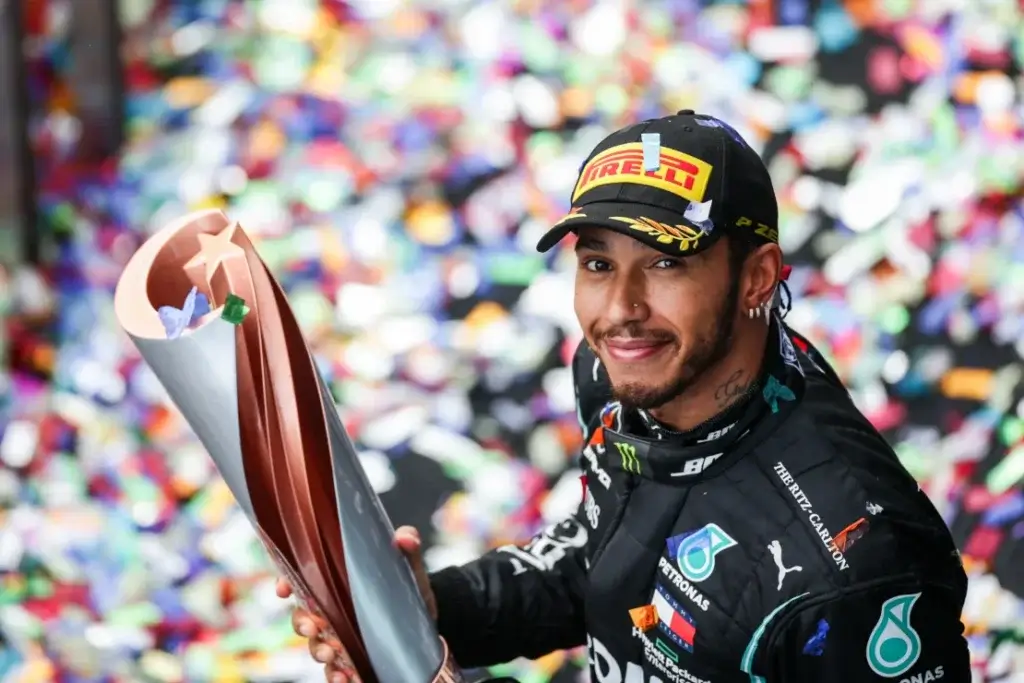
Formula 1 was a late addition to my sports diet.
My wife and I started watching during the pandemic—back when we were all rationing toilet paper, disinfecting the mail, and pretending Zoom trivia was a social life. Netflix’s Drive to Survive pulled us in, and suddenly we were debating tire strategies like seasoned pit engineers.
And then there was Lewis.
We fell hard, instantly. The man didn’t just win races; he bent time. He’d glide through corners at impossible speeds while somehow looking like he had a side hustle modeling for Vogue. Other drivers looked like they were fighting their cars; Lewis made it look like choreography.
But what sealed it wasn’t just the speed or the jewelry or the suits that deserved their own red carpet. It was the way he carried himself—using the absurd platform of F1 not just to collect trophies, but to talk about justice, equality, climate, change.
He wasn’t just dominating; he was insisting that dominance mean something.
Every sport has its legends, but Lewis Hamilton? He turned a global shutdown into the beginning of an obsession for us—and made seven world titles feel like only part of the story. He was proof that greatness doesn’t have to be quiet, and that speed, when paired with purpose, can be breathtaking.
Magic Johnson

Magic Johnson was my first favorite athlete.
His posters covered my bedroom walls, taped up at odd angles, like some kind of shrine built by a very short, very earnest architect. He wasn’t an underdog—far from it. Magic was the winner, the champion, the smile that turned basketball into a joyride.
Most of my later favorites were scrappy, improbable, gloriously flawed. But Magic? He was Showtime. He set a standard of greatness so high it should have ruined me forever—thankfully, it didn’t. I didn’t expect every athlete to be Magic after that (or every free throw to be Kareem’s skyhook). But I never forgot that first taste of what greatness looked like when it came with a grin and a no-look pass.
Magic wasn’t just my introduction to sports heroes. He was proof that sometimes the best player on the floor can also be the most joyful.
And for one kid with crooked posters and a Nerf hoop, that was magic enough.
Tiger Woods
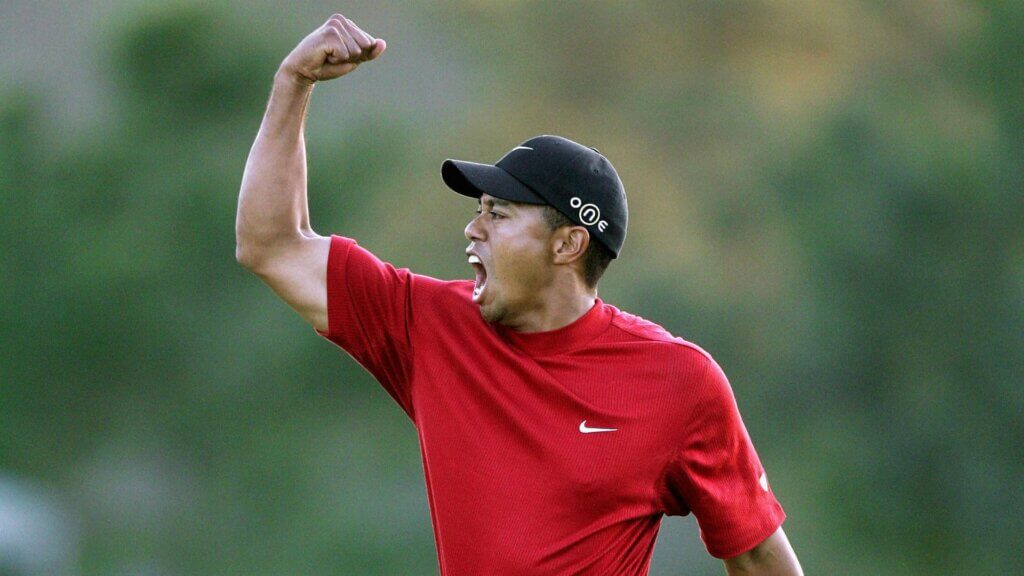
I don’t even like golf. Honestly, watching it usually feels like a punishment for sins I don’t remember committing.
And yet—Tiger Woods.
When Tiger was on, golf wasn’t golf. It was theater. It was thunder. It was a man in red, making a supposedly quiet sport feel like the Roman Colosseum.
What drew me in wasn’t just the dominance—it was the sheer electricity. Tiger would drain a monster putt and explode into a fist pump so ferocious you half-expected the earth to register it on the Richter scale.
He bent the game to his will, turned Augusta into his personal playground, and made even the non-golfers among us suddenly care about birdies and bogeys.
Of course, then there was… all the other stuff.
The scandals, the apologies, the late-night monologues. You could argue promiscuous sex was his superpower—fuel for his legend, a kind of chaotic energy that powered both his brilliance and his downfall. And somehow, when he clawed his way back to win the 2019 Masters, it felt like watching a myth resurrect itself in real time.
I don’t like golf. I may never like golf. But I’ll always love that Tiger Woods made me forget that—for a few hours, at least—and believe I was watching something closer to sorcery than sport.
Tim Howard
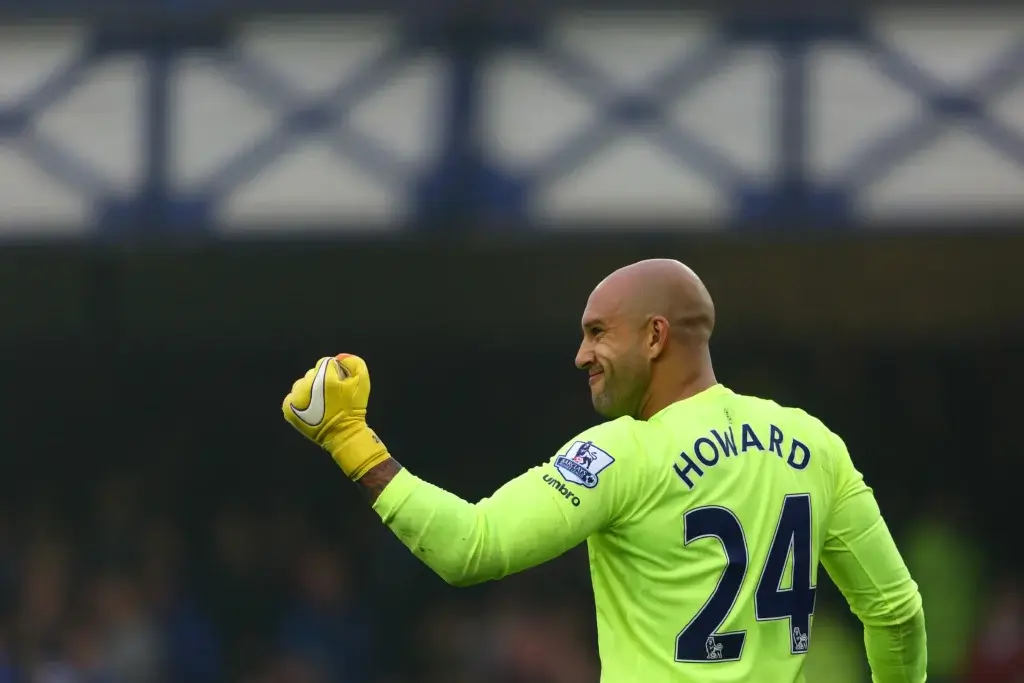
Tim Howard gave me Everton, for better or worse.
Before him, I was just a casual Premier League observer. After him, I was knee-deep in Goodison Park highlight reels, late-night kickoffs, and the kind of loyalty that feels less like a choice and more like an arranged marriage.
Howard was everything you wanted in a keeper: fierce, fearless, occasionally furious. He barked orders like a drill sergeant and then threw himself across the goalmouth like someone who hadn’t been told self-preservation was an option.
And when he was on, he was on—like that day in 2014 when he set a World Cup record with 16 saves against Belgium. Sixteen! The man basically played Whac-A-Mole with international superstars for 120 minutes and nearly pulled it off.
But what I’ll always love most is what he gave me: Everton.
A team that has brought me joy, heartbreak, and more opportunities for character development than I ever asked for. Tim Howard didn’t just keep goals; he opened a door to a lifelong obsession, one that still has me nervously checking scores like it actually affects my blood pressure.
For better or worse, Tim Howard made me a Toffee. And I’ll never stop being grateful.
Tony Romo
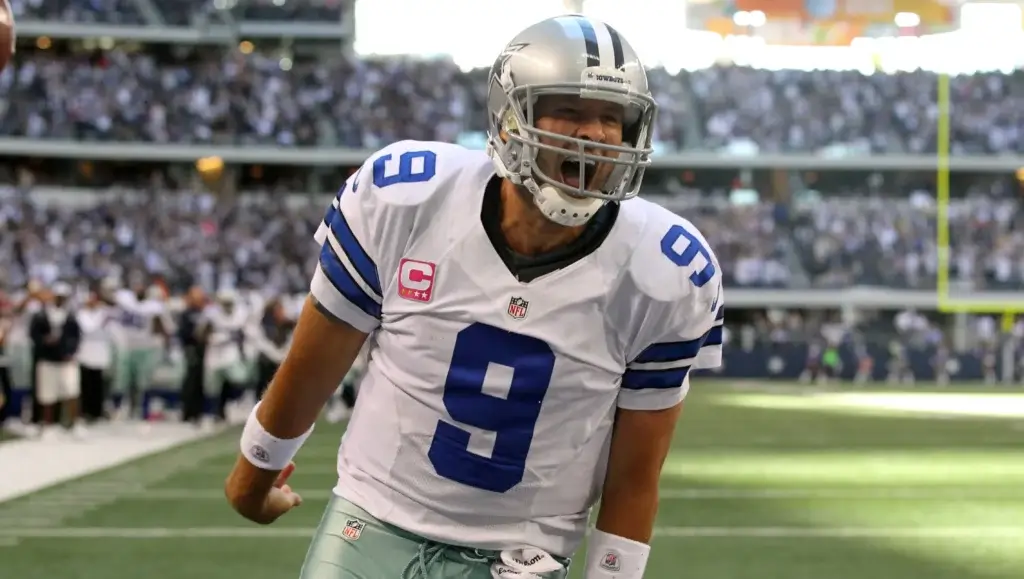
Ah, Tony Romo—a name that, in my household, is met with a mix of reverence (from me) and playful derision (from my wife).
You see, Tony has a bit of a reputation for throwing game-changing interceptions, and my wife never misses a chance to remind me of this. But let’s be clear: this is a list of my favorite players, not a ranking of people based on their number of championships—which is, let’s be honest, fortunate for Tony.
What I loved about Romo had nothing to do with Super Bowl rings or lack thereof. It was his story—going from an undrafted free agent to the starting quarterback for the Dallas Cowboys, with all the pressure that comes with America’s Team on his shoulders.
Romo didn’t have it easy, and that’s what made him so compelling.
He played with grit, determination, and the kind of resilience that makes you root for someone, even when things aren’t going their way (or when they’re throwing a late-game interception, depending on who you ask in my house).
And look, Romo wasn’t just out there flinging the ball around like a kid on a playground. He was a leader—someone who rallied his team, led by example, and never shied away from taking the blame when things didn’t go right.
There was a courage to the way Romo played. He wasn’t afraid to take risks, even if those risks occasionally led to my wife pointing at the screen with an “I told you so” look in her eye. But that’s what made him special.
Romo wasn’t perfect (and that’s putting it kindly), but he had a fire in him that refused to burn out.
Every time he took the field, you knew he was going to give everything he had, even if it meant taking a few hits and making a few mistakes along the way. And for me, that’s what made him one of my favorite players.
Tony Romo was the kind of guy you couldn’t help but root for—because, despite all the interceptions and the missed opportunities, he played with a kind of joy, a kind of passion that’s hard to find.
So yes, Tony may not have racked up the championships, but he racked up something else: a place on this list and, dare I say, a place in my football heart. And that’s more than enough for me (though maybe not for my wife).


